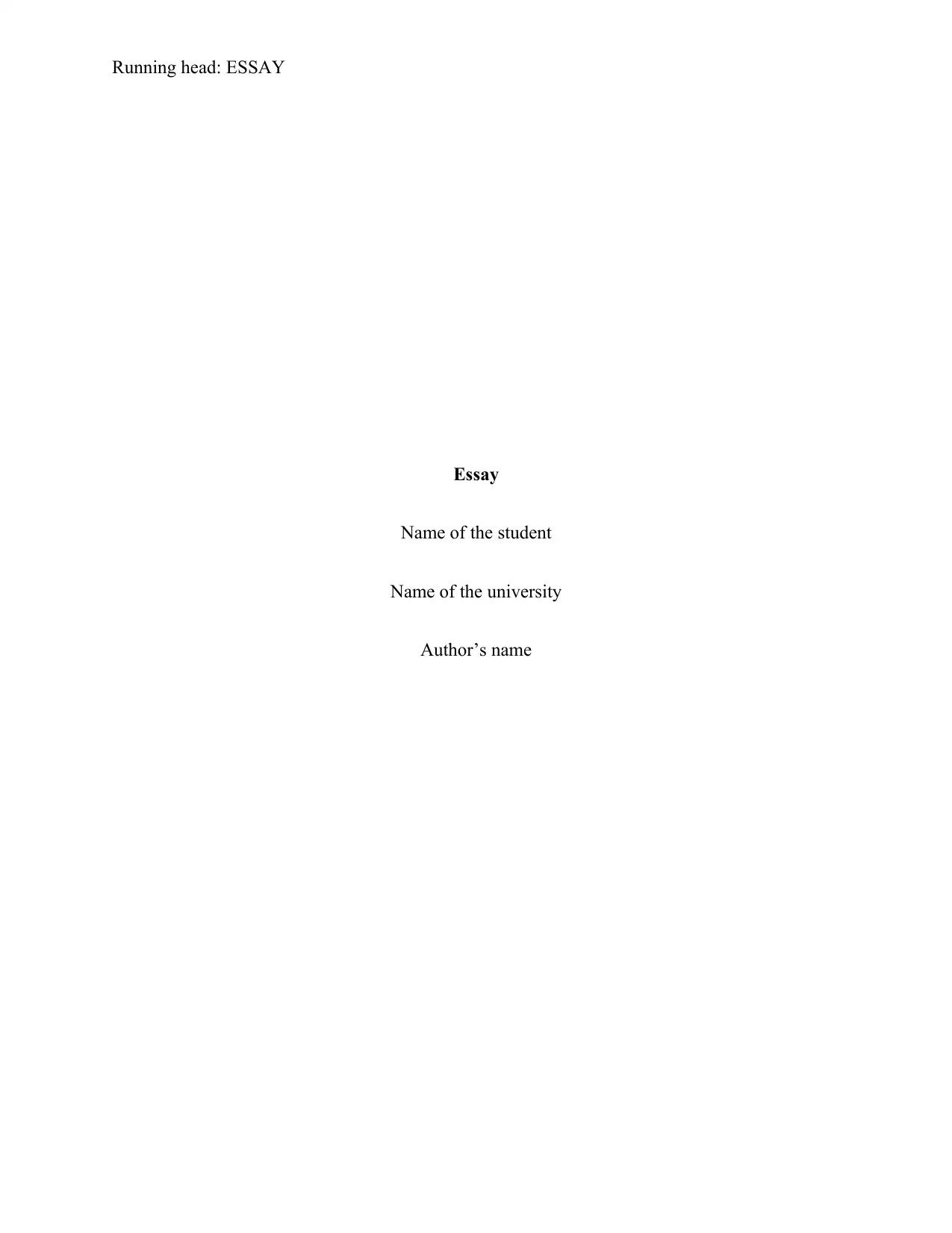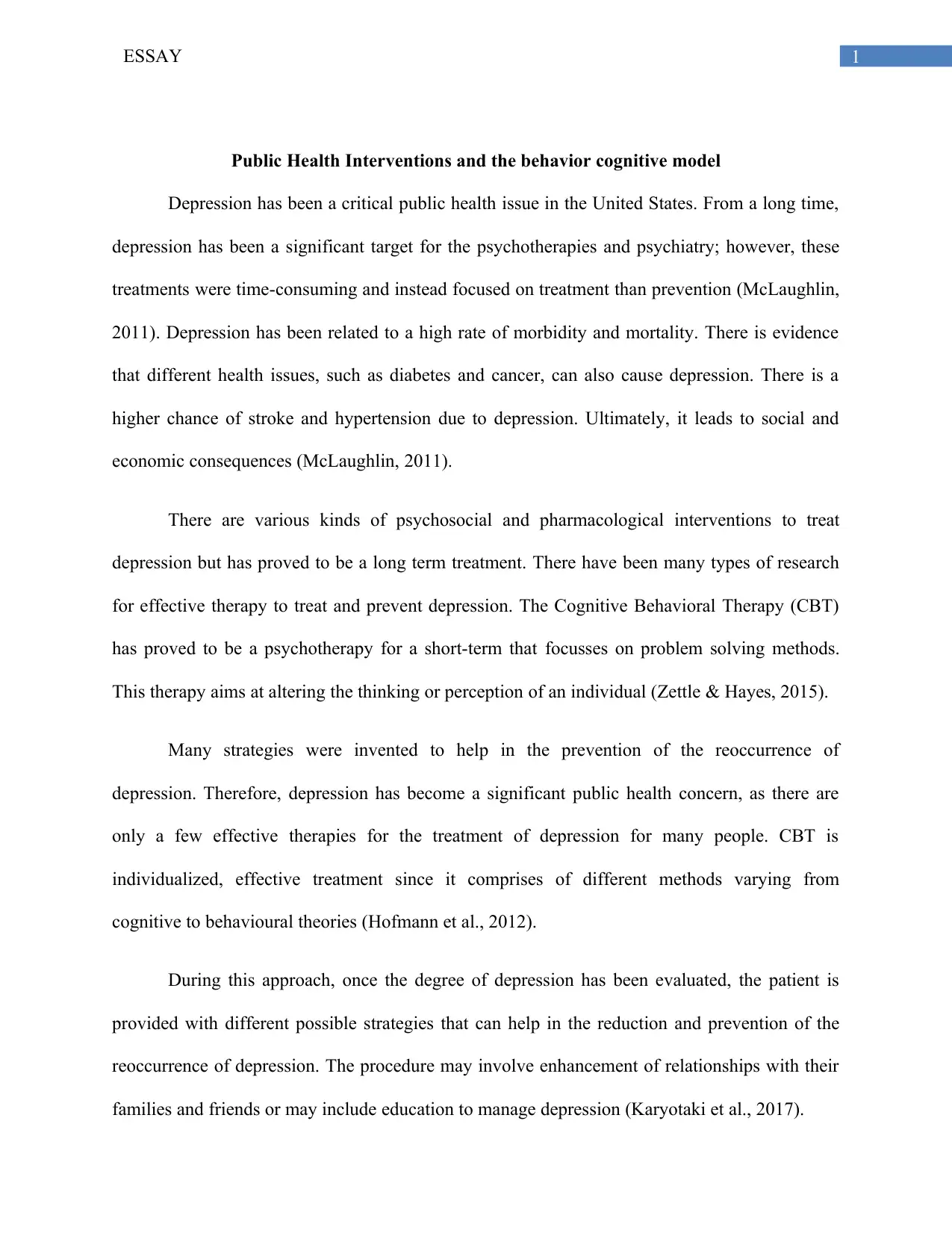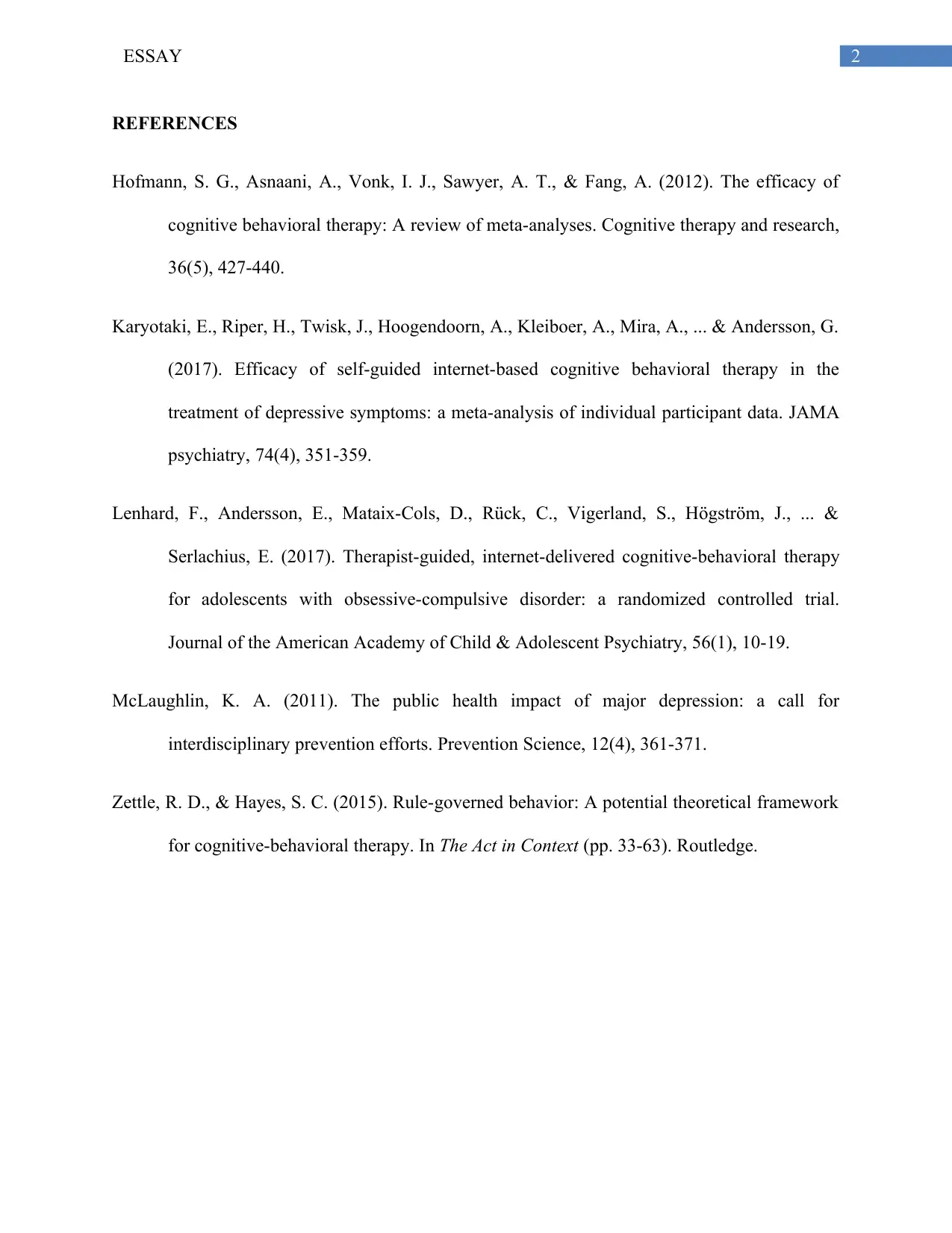Essay on the Impact of Depression and CBT in Public Health
VerifiedAdded on 2022/10/04
|3
|606
|21
Essay
AI Summary
This essay explores the significant impact of depression on public health, highlighting its association with various health issues and socioeconomic consequences. It examines the limitations of traditional treatments and introduces Cognitive Behavioral Therapy (CBT) as a short-term, effective psychotherapy approach. The essay delves into the mechanisms of CBT, focusing on how it aims to alter an individual's thinking and perception to manage and prevent the recurrence of depression. It also touches upon the role of different strategies, such as enhancing relationships and providing education, in the treatment process. The essay emphasizes the importance of CBT as an individualized approach and its effectiveness in addressing depression. The essay references several studies that support the efficacy of CBT in treating depression.
1 out of 3








![[object Object]](/_next/static/media/star-bottom.7253800d.svg)